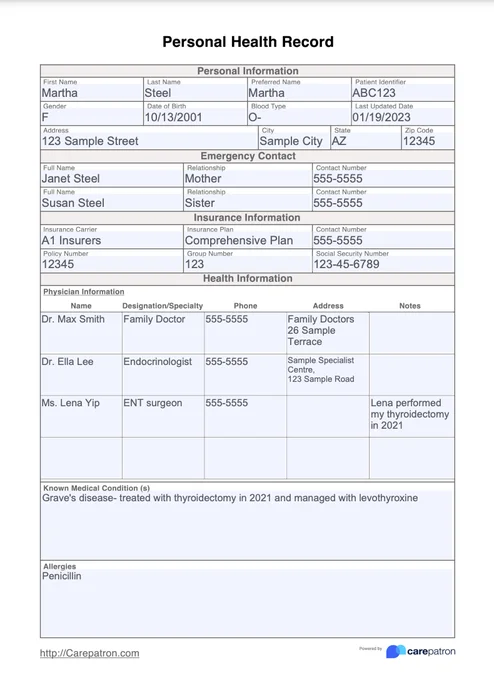A Medical Record is an Example of?

In the field of healthcare, proper and high-quality patient treatment depends on precise and complete documentation. In this profession, the medical record is among the most important kind of documentation available. Maintaining healthcare professionals, a medical record is an example of a comprehensive and methodical documentation of a patient's personal information, medical history, treatments. It is absolutely important for the treatment, legal protection, and general efficiency of healthcare delivery.
What exactly is a medical record?
A medical record is an information store covering a broad spectrum of data concerning the health of a patient. Included here are:
Personal Information: Name, birthdate, phone number, insurance information, etc. of the patient.
Medical History: Recording of prior diseases, surgeries, allergies, family medical history.
Clinical Notes: Notes on observations made by medical professionals covering symptoms, diagnosis, and treatment strategies.
Medications: List past and present drugs together with doses and duration.
Test results include imaging investigations, laboratory testing, and other diagnostic procedures.
Records of all treatment plans, follow-up directions, and progress notes.
Communication notes from interactions between a patient or their family and healthcare practitioners capture communication records.
Example of medical Record

Medical Records' Significance
Medical records guarantee that every healthcare practitioner engaged in a patient's treatment has quick access to their health information. Good therapy depends on this consistency, particularly in situations involving several physicians.
Medical records serve as legal papers that courts can use to confirm the treatment received. In case of conflicts or malpractice claims, they safeguard the patient as well as the healthcare professional.
Examining information in health records enables healthcare organizations to identify patterns, monitor outcomes, and implement strategies designed to improve patient treatment.
Research and Education: Clinical research and education find great value in medical records. They offer actual data that may be investigated illnesses, assess therapies, and equip medical experts.
Difficulties in Medical Record Management
Medical records are important, but handling them might provide various difficulties.
Privacy and Security: One of the issues is keeping patient data free from illegal access. Medical professionals have to follow rules like HIPAA in the United States, which calls for strict security standards.
Data accuracy: Medical record mistakes in data accuracy can have grave results. Crucially, all information should be accurate, current, and well recorded.
Electronic Health Records (EHRs) have made healthcare more efficient by replacing paper documents with digital ones. However, this change also brings challenges, including the need for compatible systems, proper training, and ensuring data accuracy.
In summary,
Ultimately, the foundation of patient care is a medical record, a type of essential healthcare paperwork. It is an all-encompassing body of information about the health history, clinical findings, therapies, and results of a patient including personal information. One cannot emphasize the need of keeping accurate and safe medical records as healthcare develops. Legal protection, continuity of treatment, quality enhancement, and funding medical research and education depend on them.
